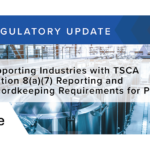
Obtaining a stormwater permit in San Antonio, TX is an essential step for any individual or organization involved in construction projects or land development that may impact stormwater runoff. In this article, we will explore the importance of a stormwater permit, the process for obtaining one in San Antonio, and the associated costs and maintenance requirements. By understanding these aspects, you can ensure compliance with stormwater regulations and contribute to the overall environmental health of the city.
Understanding the Importance of a Stormwater Permit
Before delving into the specifics of obtaining a stormwater permit in San Antonio, it is crucial to comprehend the significance of such permits. Stormwater management plays a vital role in urban areas, preventing various environmental issues and protecting public health.
The Role of Stormwater Management in Urban Areas
In urban areas like San Antonio, stormwater management seeks to mitigate the adverse effects of stormwater runoff. It involves the implementation of practices and infrastructure designed to control the quantity and quality of stormwater that enters the city’s drainage system.
Stormwater runoff occurs when rainwater flows over impervious surfaces such as roads, parking lots, and rooftops, picking up pollutants along the way. Without proper management, this runoff can cause flash flooding, erosion, and contamination of water bodies, leading to significant ecological and health risks.
Environmental Implications of Stormwater Runoff
The environmental implications of stormwater runoff are far-reaching. Pollutants washed off from various sources, such as chemicals from industrial sites, sediment from construction sites, and fertilizers from agricultural areas, can enter nearby streams, rivers, and other bodies of water.
These pollutants can degrade water quality, harm aquatic ecosystems, and endanger both human and aquatic life. They may also contribute to the growth of harmful algae blooms and negatively impact recreational activities and water supply sources.
Furthermore, stormwater runoff can have long-term effects on the health of the surrounding environment. As pollutants accumulate in water bodies, they can persist for extended periods, leading to chronic contamination. This contamination can disrupt the delicate balance of ecosystems, affecting the abundance and diversity of plant and animal species.
Additionally, stormwater runoff can have indirect effects on the environment through the alteration of natural hydrological processes. When rainwater is unable to infiltrate the ground due to impervious surfaces, it cannot replenish groundwater reserves or contribute to the natural recharge of aquifers. This can lead to water scarcity issues and impact the availability of water resources for both human consumption and agricultural needs.
The Stormwater Permit Process in San Antonio
The process of obtaining a stormwater permit in San Antonio involves several steps that should be followed diligently to ensure compliance with city regulations.
Initial Steps for Applying for a Stormwater Permit
When considering a construction or land development project within the city, the first step is to determine whether a stormwater permit is required. The San Antonio River Authority (SARA) is responsible for reviewing and issuing stormwater permits.
Before submitting an application, it is essential to consult with SARA to determine the specific permit requirements based on the project’s size, location, and potential environmental impact. These consultations will provide guidance to help ensure that all necessary information and documentation are included in the application.
Required Documentation for Stormwater Permit Application
When applying for a stormwater permit in San Antonio, certain documentation must be provided to support the application. The required documentation may include project plans, site maps, stormwater management plans, erosion and sedimentation control plans, and any necessary engineering calculations.
Ensuring the accuracy and completeness of these documents will help expedite the review process and demonstrate compliance with stormwater regulations. It is advisable to seek professional assistance, such as hiring a qualified engineer, to assist in the preparation of these documents.
Navigating the City of San Antonio’s Stormwater Regulations
Understanding the specific stormwater regulations in San Antonio is crucial for ensuring compliance with the city’s requirements. Familiarizing yourself with these regulations will help you navigate the stormwater permit process more effectively.
Key Aspects of San Antonio’s Stormwater Ordinance
The stormwater ordinance in San Antonio outlines guidelines for stormwater management and sets forth specific requirements for construction activities. It addresses various aspects, including erosion and sedimentation control, post-construction stormwater management, and maintenance of stormwater management practices.
Reviewing the stormwater ordinance in detail will provide you with a comprehensive understanding of the city’s expectations and assist you in developing effective stormwater management strategies that align with the regulations.
Compliance with the City’s Stormwater Quality Standards
Ensuring compliance with the city’s stormwater quality standards is of utmost importance for obtaining and maintaining a stormwater permit. Meeting these standards involves implementing best management practices (BMPs) tailored to the specific project and site conditions.
BMPs may include measures such as the use of sediment control devices, erosion control practices, stormwater detention structures, and the proper disposal of construction and demolition debris. Compliance with these standards helps protect water quality and reduces the potential negative impacts of stormwater runoff.
Costs Associated with Obtaining a Stormwater Permit
While obtaining a stormwater permit is crucial, it is essential to be aware of the costs involved in the process.
Permit Application Fees and Other Expenses
When applying for a stormwater permit in San Antonio, you will be required to pay an application fee. The fee typically varies depending on the project size and complexity. Additionally, you will need to account for other expenses, such as hiring professionals to assist with the preparation of required documentation or implementing necessary stormwater management practices.
It is advisable to budget for these costs in advance to ensure a smooth and efficient permit application process.
Potential Penalties for Non-Compliance
Failing to comply with stormwater regulations in San Antonio can result in penalties, which may include fines and potential project delays. Non-compliance can also lead to negative impacts on the environment and public health, underscoring the importance of diligently adhering to the stormwater permit requirements.
Maintaining Your Stormwater Permit
Once you have obtained a stormwater permit, it is crucial to fulfill the ongoing requirements for maintaining the permit.
Regular Inspections and Reporting Requirements
Regular inspections are typically conducted to ensure that stormwater management practices and measures are functioning as intended. These inspections may be carried out by SARA or other relevant authorities.
In addition to inspections, reporting requirements are often necessary to demonstrate compliance with stormwater permit conditions. These reports typically detail the performance of stormwater management practices and may require documentation such as monitoring data and maintenance records.
Renewal Process for Stormwater Permits in San Antonio
Stormwater permits in San Antonio generally have a finite duration and require renewal. To avoid any disruption in project activities, it is essential to understand the renewal process and submit the necessary documentation and fees within the specified timeframe indicated by the city.
Renewing your stormwater permit on time ensures continued compliance with stormwater regulations and helps maintain the integrity of your construction or development project.
In conclusion, obtaining a stormwater permit in San Antonio, TX is a vital step in ensuring responsible stormwater management and protecting the environment. By understanding the importance of a stormwater permit, navigating the permit process, and complying with regulations, you can contribute to maintaining the health and sustainability of San Antonio’s water resources.
Ready to ensure your project in San Antonio meets all stormwater compliance requirements? Look no further than ESE Partners. Our team of environmental experts specializes in navigating the complexities of stormwater permitting and regulations, providing you with peace of mind and a clear path to project success. With our extensive experience in environmental consulting and a strong presence in the San Antonio market, we’re equipped to offer tailored solutions that responsibly move your business forward. Don’t let changes in regulatory processes slow you down. Request A Proposal today and let ESE Partners expedite your stormwater permit application with our innovative and sustainable approaches.








